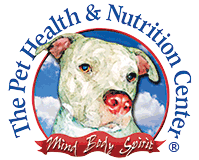Pet Health Tip - Antibiotics
Antibiotics work by affecting bacteria cells in several ways. Beta-lactam antibiotics (penicillin) kill bacteria by interfering with the process they use to build cell walls. Macrolide antibiotics (erythromycin) block bacterial specific ribosomes and prevent them from building proteins. Since proteins do all the cell’s work, a bacterium that cannot build proteins cannot survive. Quinolone antibiotics (ciprofloxacin/levofloxacin) work by causing bacteria DNA strands to break and then prevents the breaks from being repaired.
The good news is that antibiotics don’t affect human cells because although there are similarities between human and bacterial cells there are also differences. The bad news is that antibiotics will harm your dog or cat’s beneficial bacteria. These friendly bacteria play a role in digestion by producing enzymes and some vitamins, and also immune activity by preventing opportunistic pathogenic bacteria from multiplying. For instance, clostridium bacteria are part of the internal environment and do not normally harm healthy animals. However, when antibiotics kill too many friendly bacteria in the intestine, this bacteria multiplies and produces toxins that can make your dog or cat sick with symptoms like fever, nausea and diarrhea.
What should I do?
Use antibiotics only when absolutely necessary! Taking antibiotics “just in case” or ineffectively against a virus can hurt your dog or cat by damaging colonies of beneficial microbes. Damaging these important “resident” bacteria can lead to their replacement with opportunistic bacteria that can lead to underlying health issues in your dog or cat that last their lifetime. So, instead of “killing” think “building” by strengthening your animal’s immune system (Astragalus, 14 Mushroom Blend, Colostrum etc) and replenishing probiotics on a daily basis (Digestive Enzymes and Probiotics or Daily Multi Plus. If necessary, we also provide a safer, less damaging alternative to antibiotics called Antimicrobial Formula.

